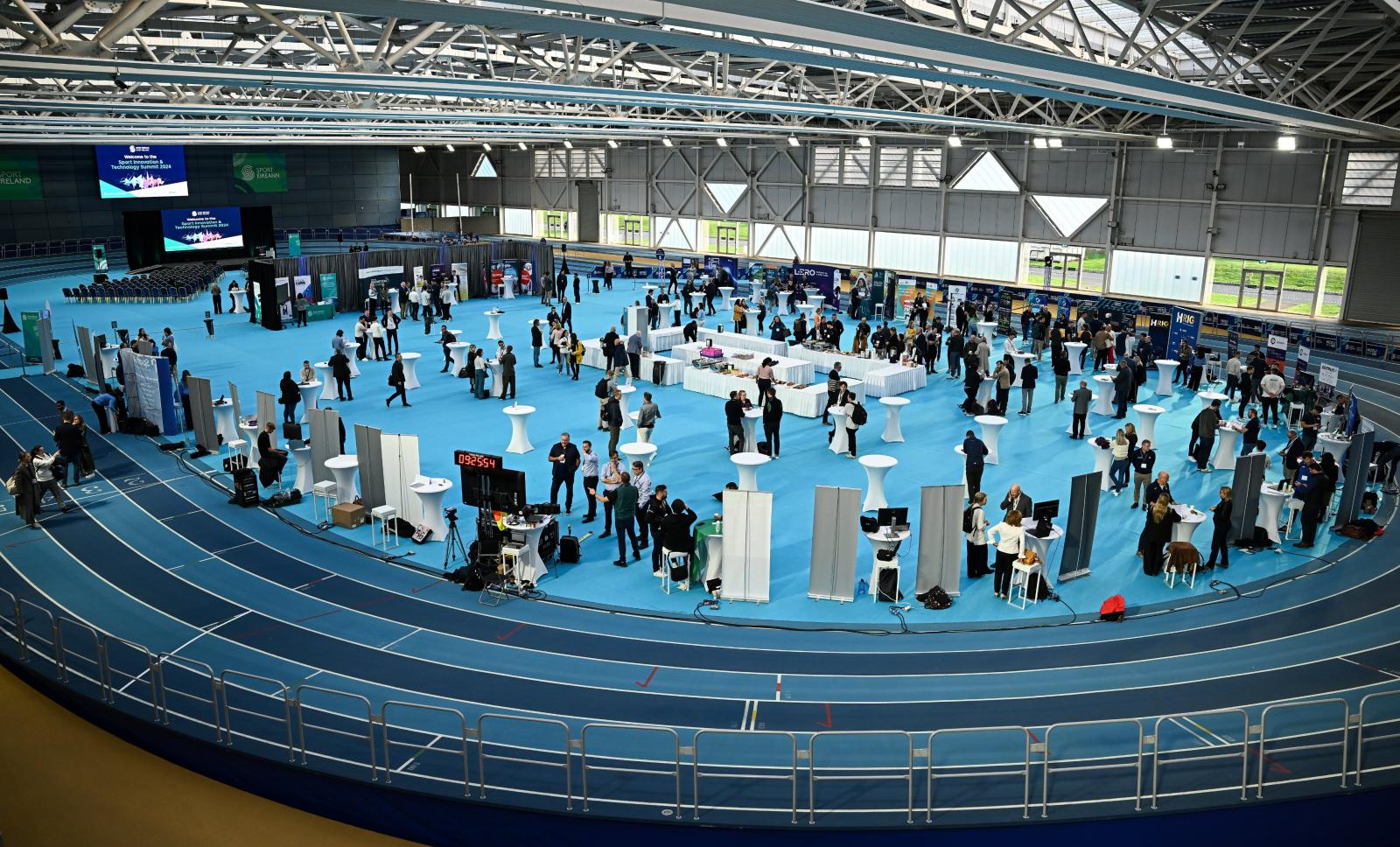
Harnessing technology for sporting success: Lessons from the Sport Innovation and Technology Summit
Earlier this year the Sport Innovation and Technology Summit highlighted the exciting work taking place at the nexus of technology and sport. Here Sowmia Sundaresan and Jessica Wang look at some of the highlights from the event and the tech trends shaping the world of sports
The sporting landscape is evolving at a rapid pace, with technology changing the way we participate, watch, and engage in sport.
This year’s Sport Innovation and Technology Summit, which took place in the Sport Ireland National Indoor Arena, provided attendees with valuable insights into the technology used in sport and highlighted how these innovations result in individual and team success on the world stage.
With the support of Enterprise Ireland and Intertrade Ireland and in partnership with IDA Ireland and Skillnet Innovation Exchange, the summit attracted 380 people working in sport, research, State bodies and the enterprise community, making it a sold-out event for the second successive year.
John Foley, Chairperson of Sport Ireland, highlighted the importance of the event in his opening remarks. “Innovation and technology have the potential to impact sport in a very positive way from grassroots participation to supporting our most talented athletes to compete at the highest levels,” he said.
Participants heard how cutting-edge technologies such as artificial intelligence (AI), data analytics, and online platforms are revolutionising athlete performance, fan engagement, and sports management.
With expert-led panels, breakout sessions, and networking opportunities with industry leaders, the summit provided invaluable knowledge for professionals looking to stay ahead in the ever-evolving sports landscape.
Benny Cullen, Sport Ireland Director of Research & Innovation said: “The event is about building connection between enterprise, research and sport as these connections can bring new thinking, new ideas and new opportunities into sport.”
Irishman Finbarr Kirwan, a keynote speaker at the event, is Chief of Olympic Sport at the US Olympic and Paralympic Committee, and the man tasked with putting the US to the top of the medal table for the 2024 Olympic and Paralympic Games in Paris.
At this year's Olympic games in Paris, the US team topped the overall medal table, including 40 gold medals, with the use of technology being a big factor for this, as detailed by Kirwan.
American runner Noah Lyles won gold at the Paris Olympics, taking victory by just five one thousandths of a second in the 100m sprint. On such fine margins are medals won and lost.
Data helped Lyles better understand his performance and allowed him to target specific areas for improvement. The software highlighted areas of potential improvement such as his race start, his body positioning while in stride and his speed within each 30m segment of each race.
His performances were examined through the VAMA programme, a piece of software that was developed specifically to examine data and analytics in an athlete’s performance (for track and field).
This was one of the many examples provided at the conference where technology played a crucial role in the success achieved.
Dr Patrick Lucey, Chief Scientist at Stats Perform, demonstrated how football teams are using data-driven technologies to win the biggest honours in club football such as the Premier League and Champions League.
Opta enhances user engagement in sports by providing a comprehensive range of features, including fast live scores, play-by-play updates, vibrant visual text commentaries, in-depth historical player and team stats, advanced metrics, predictions, and more.
Ireland’s Ali Donnelly, CEO of More than Equal, which is dedicated to finding the first female Formula 1 world champion, presented the final keynote speech. It focused on how she is trying to revolutionise women’s motorsport using data. More than Equal carried out extensive research through a global attitude survey that collected feedback from over 3,200 female fans. The survey was followed up by in-depth desk studies to explore data across other women’s sport and to summarise the history and current dynamics of the space.
The breakout sessions for attendees focused on specific topics and highlighted the technologies being used in Irish sports. From digital membership management and online ticketing systems to live streaming, opportunities are available to enhance the overall sporting experience in any code.
The Sport Innovation and Technology Summit offered a timely reminder of how embracing innovation and investing in digital solutions can assist with achieving success on the world stage.
Sowmia Sundaresan is an Evaluation Officer with Sport Ireland
Dr Jessica Wang is a Sport Ireland Evaluation Manager